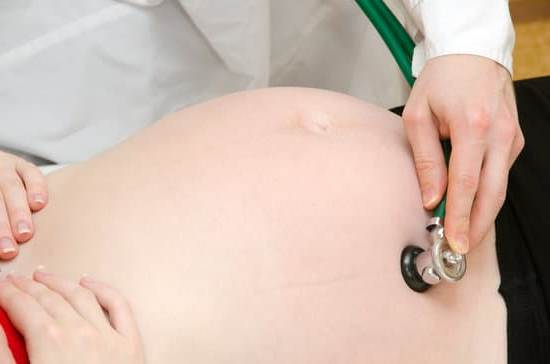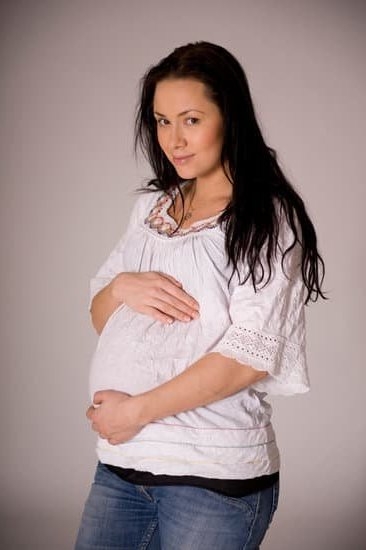Are you experiencing unusual symptoms and wondering if they could be signs of pregnancy before a missed period? It’s common for women to start noticing certain changes in their bodies even before their expected period date. Understanding these early signs can help you recognize the possibility of pregnancy and take appropriate measures.
One of the earliest signs of pregnancy is typically changes in the breasts, such as soreness and swelling. Many women also report feeling unusually fatigued and tired, despite not engaging in strenuous activities. Nausea and morning sickness, along with increased urination, are other common indicators that may suggest you are pregnant.
In this article, we will explore the various early signs of pregnancy before a missed period. From food aversions and cravings to mood swings, spotting, and cramping – recognizing these symptoms can help you better understand your body’s response to a potential pregnancy. Understanding these signs is essential for taking a timely pregnancy test and making informed decisions about your reproductive health.
Changes in the Breasts
During the early stages of pregnancy, one common sign that many women experience is changes in their breasts. This can include soreness and swelling, which can be noticeable even before a missed period. The hormonal changes in the body during pregnancy can lead to these symptoms, as the body prepares for breastfeeding and the growth of the baby.
Understanding Breast Soreness
Breast soreness or tenderness may be one of the earliest signs of pregnancy before a missed period. This can feel like a heightened sensitivity or mild discomfort, similar to what some women experience before menstruation. However, it may also be more pronounced and accompanied by noticeable swelling.
Dealing With Breast Changes
If you notice soreness or swelling in your breasts before your expected period, it may be worth considering taking a pregnancy test. In the meantime, wearing a supportive bra and avoiding excessive caffeine can help alleviate any discomfort. It’s also important to communicate any changes with your healthcare provider to ensure proper guidance throughout your pregnancy journey.
These early signs of pregnancy before a missed period are important indicators that your body is undergoing significant changes. Recognizing these symptoms can help you prepare for possible motherhood and make informed choices about your health and well-being. If you notice these changes in your breasts along with other potential signs of pregnancy, it might be time to consider taking a home pregnancy test or consulting with a healthcare professional for further guidance.
Fatigue and Tiredness
Feeling unusually tired and exhausted can be one of the earliest signs of pregnancy before missed period. Many women report feeling an overwhelming sense of fatigue in the early stages of pregnancy, even before they realize they are pregnant.
This unexplained exhaustion is often attributed to the hormonal changes taking place in the body as it prepares for pregnancy. The increased levels of progesterone can cause a feeling of sleepiness and lethargy, making it harder to get through the day without needing additional rest or naps.
In addition to hormonal changes, the body’s metabolism also works overtime during early pregnancy, contributing to feelings of fatigue. As the body undergoes physiological changes to support a growing fetus, more energy is expended, leaving the expectant mother feeling drained and tired. It’s important for women who suspect they may be pregnant and are experiencing extreme fatigue to listen to their bodies and make time for adequate rest.
For some women, fatigue and tiredness may be accompanied by other early signs of pregnancy such as nausea and breast tenderness. It’s essential to pay attention to these symptoms as they could indicate that a woman is expecting, even before a missed period. While fatigue on its own does not confirm pregnancy, when experienced alongside other symptoms, it may warrant taking a home pregnancy test or visiting a healthcare provider for confirmation.
Nausea and Morning Sickness
Managing Nausea and Morning Sickness
For those who are struggling with nausea and morning sickness, there are a few strategies that can help alleviate these symptoms. Eating small, frequent meals throughout the day can prevent the stomach from becoming too empty, which often triggers feelings of nausea. Additionally, staying hydrated by sipping on water or ginger tea can also provide relief. Some women find that snacking on crackers or dry toast in the morning helps settle their stomachs.
When to Seek Medical Advice
While nausea and morning sickness are common signs of pregnancy before a missed period, it’s important to monitor these symptoms and seek medical advice if they become severe or persistent. Prolonged vomiting and an inability to keep any food or liquids down can lead to dehydration, which can pose risks for both the mother and the developing fetus.
If you are unable to manage your symptoms at home or if you have concerns about your health, it’s best to consult with a healthcare provider for guidance and support.
Increased Urination
One of the early signs of pregnancy before a missed period is the need for frequent urination. Many women experience this symptom as early as a few weeks into their pregnancy. The hormonal changes in the body can lead to an increase in blood flow to the kidneys, which results in more urine production. Additionally, the growing uterus puts pressure on the bladder, causing women to feel like they need to pee more often.
It’s important to note that increased urination can also be a sign of other conditions such as urinary tract infections or diabetes, so it’s essential to consider other symptoms and consult with a healthcare professional if you suspect you might be pregnant.
In addition to increased urination, some women may also experience urinary incontinence during pregnancy due to weakened pelvic floor muscles. This can lead to leakage when coughing, sneezing, or laughing. To manage this symptom, Kegel exercises and maintaining a healthy weight can help strengthen the pelvic floor muscles and alleviate urinary incontinence.
| Signs of Pregnancy Before Missed Period | Details |
|---|---|
| Increased Urination | Hormonal changes lead to more urine production and pressure on the bladder |
| Urinary Incontinence | Weakened pelvic floor muscles can cause leakage; Kegel exercises and maintaining a healthy weight can help |
Food Aversions and Cravings
During the early stages of pregnancy, many women experience unusual changes in their food preferences. These changes can include both aversions to certain foods and cravings for others. While these changes are often associated with the later stages of pregnancy, they can actually begin as one of the first signs of pregnancy before a missed period.
Some women may find that they suddenly cannot tolerate certain foods that they previously enjoyed, while others may develop intense cravings for specific items. These changes in taste preferences can be quite sudden and powerful, and are often one of the most noticeable early signs of pregnancy.
Signs of Pregnancy Before Missed Period
- Increased aversion to certain foods
- Sudden cravings for specific items
- Heightened sense of taste and smell
If you find yourself experiencing extreme aversions to foods you used to love or suddenly craving odd combinations, it might be worth considering taking a pregnancy test. While these changes in food preferences don’t definitively confirm a pregnancy, they could be one of several signs indicating that you could be expecting. If you do suspect that you may be pregnant based on these symptoms, contacting a healthcare professional is always recommended for further guidance and advice.
Mood Swings
During the early stages of pregnancy, it’s common for women to experience mood swings, which can feel like an emotional rollercoaster. These mood swings are often attributed to the hormonal changes that occur in the body as it prepares for pregnancy. It’s important for women to be aware of these emotional changes and understand that they are a normal part of early pregnancy.
Here are some common signs of pregnancy before missed period related to mood swings:
- Irritability and sensitivity: Some women may find themselves feeling more irritable or sensitive than usual. Minor inconveniences or stresses can feel overwhelming during this time.
- Mood fluctuations: Women may find themselves swinging between feelings of happiness, sadness, anxiety, and anger without any apparent trigger.
- Anxiety and worry: It’s not uncommon for women to experience increased anxiety or worry about the pregnancy, parenting, and future responsibilities.
It’s crucial for expectant mothers to surround themselves with support during this time, whether it be from family, friends, or healthcare professionals. Talking about these feelings with loved ones and seeking reassurance can help alleviate some of the stress associated with mood swings during early pregnancy. Taking care of one’s mental health is just as important as taking care of physical health during this critical time.
Spotting and Cramping
One of the early signs of pregnancy before a missed period is spotting and cramping. Many women mistake this for the beginning of their menstrual cycle, but it can actually indicate implantation bleeding, which occurs when the fertilized egg attaches to the uterine lining.
This light bleeding can be pink or brown in color and is usually much lighter than a normal period. In addition to spotting, some women may also experience mild cramping, similar to what they might feel during their period but milder.
It’s important to note that not all women will experience spotting and cramping as a sign of early pregnancy, so it’s not a definitive indicator on its own. However, if you are trying to conceive and notice these symptoms before your expected period, it may be worth considering taking a home pregnancy test to confirm whether or not you are pregnant.
In addition to implantation bleeding and cramping, other common early signs of pregnancy before a missed period include changes in breast tenderness, fatigue, nausea or morning sickness, increased urination frequency, food aversions or cravings, and mood swings. Keep in mind that every woman’s experience with early pregnancy symptoms can vary greatly – some women may only notice one or two symptoms while others may experience several.
If you suspect you may be pregnant based on these signs, it’s best to consult with your healthcare provider for further testing and guidance.
| Signs of Pregnancy Before Missed Period | Description |
|---|---|
| Spotting and Cramping | Light bleeding and mild cramping caused by implantation |
| Changes in Breasts | Soreness and swelling due to hormonal changes |
| Fatigue and Tiredness | Unexplained exhaustion often experienced in early pregnancy |
Conclusion
In conclusion, recognizing the signs of pregnancy before a missed period can be crucial for women who are trying to conceive or are concerned about potential pregnancy. Being aware of the early symptoms such as changes in the breasts, fatigue, nausea, increased urination, food aversions and cravings, mood swings, and spotting/cramping can help women understand their bodies better and know when it might be time to take a pregnancy test.
It’s important to note that not every woman will experience all of these symptoms, and some may even have a few without being pregnant. However, knowing what to look out for can help alleviate any anxiety or uncertainty. Women who suspect they may be pregnant based on experiencing these signs should consider taking a home pregnancy test or consulting with their healthcare provider for confirmation.
Ultimately, understanding the signs of pregnancy before a missed period empowers women to take control of their reproductive health and make informed decisions about their future. Whether it’s planning for a baby or taking necessary precautions, being knowledgeable about early pregnancy symptoms is an essential part of reproductive wellness.
Frequently Asked Questions
Can You Tell if You’re Pregnant Before a Missed Period?
It is possible to detect pregnancy before a missed period, but it’s not always accurate. Some early signs include breast tenderness, nausea, fatigue, and frequent urination. However, taking a pregnancy test after a missed period is the most reliable way to confirm.
How Do You Know if Your Period Is Coming or Your Pregnant?
Distinguishing between the symptoms of an upcoming period and early pregnancy can be tricky. Both can cause breast tenderness, mood swings, and bloating. However, pregnancy may also cause nausea, more frequent urination, and a heightened sense of smell.
How Early Do Pregnancy Symptoms Start?
Pregnancy symptoms can start as early as one week after conception. These early signs may include fatigue, breast tenderness, nausea or vomiting (often referred to as morning sickness), and food aversions or cravings. Keep in mind that every woman’s experience with early pregnancy symptoms can vary widely.

Welcome to my fertility blog. This is a space where I will be sharing my experiences as I navigate through the world of fertility treatments, as well as provide information and resources about fertility and pregnancy.





